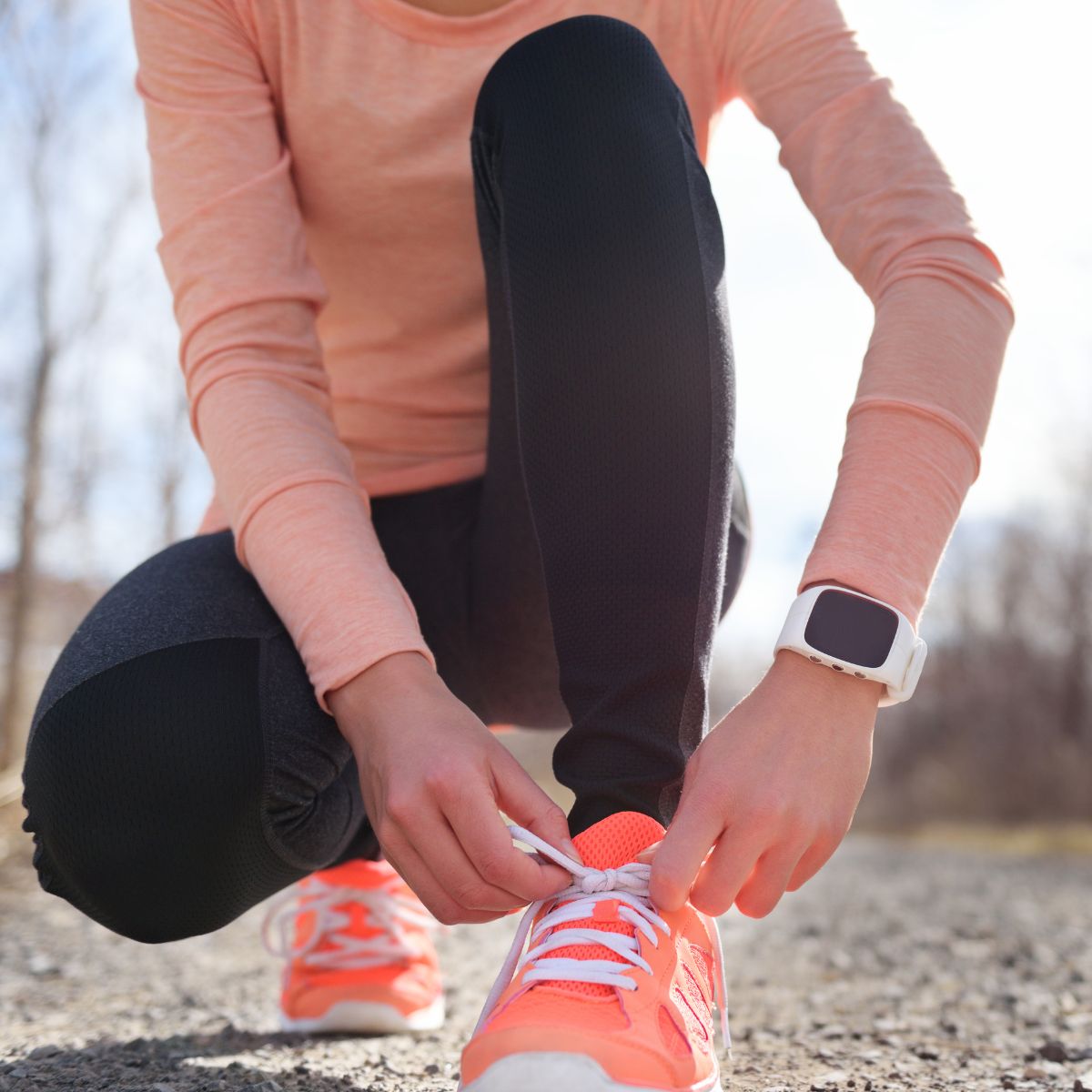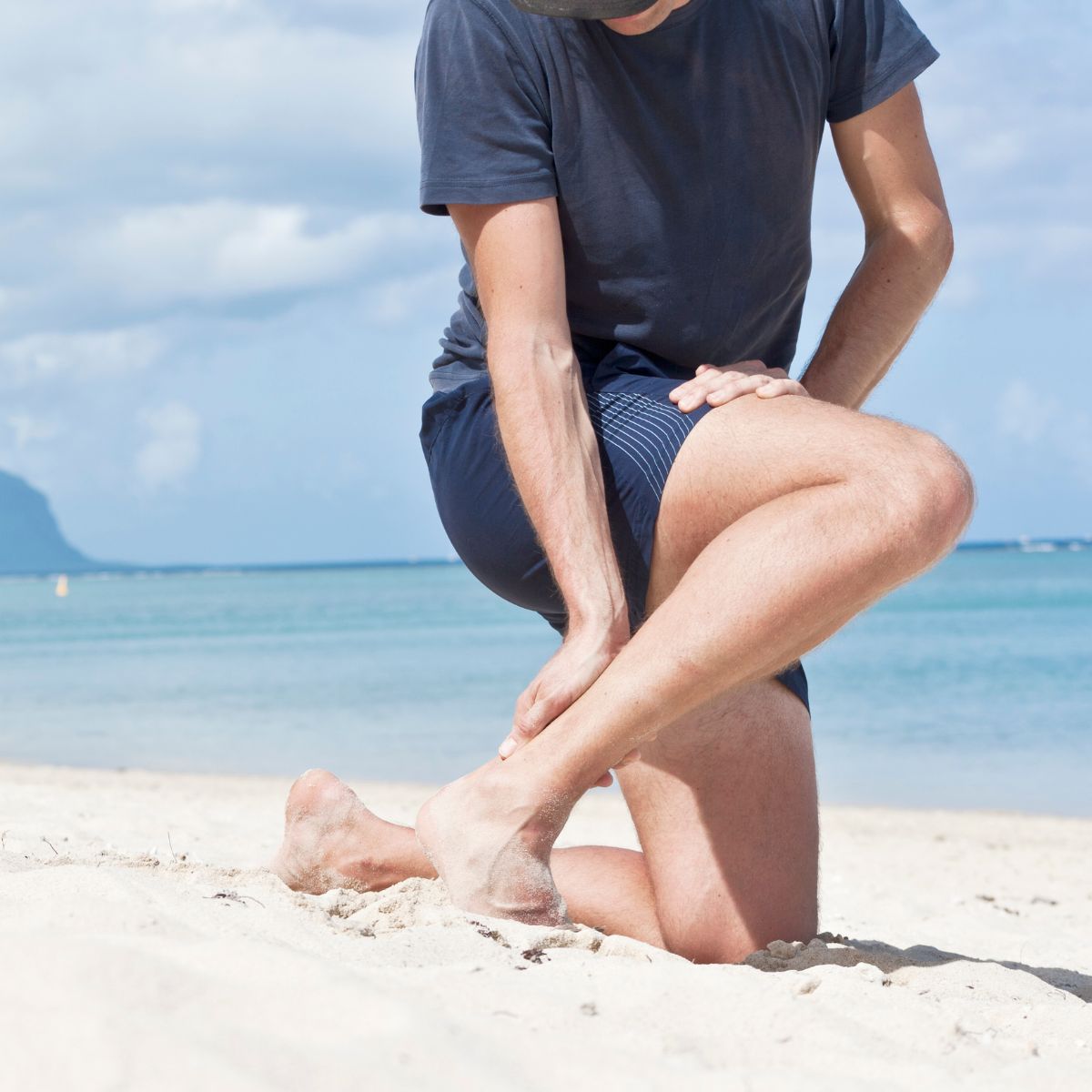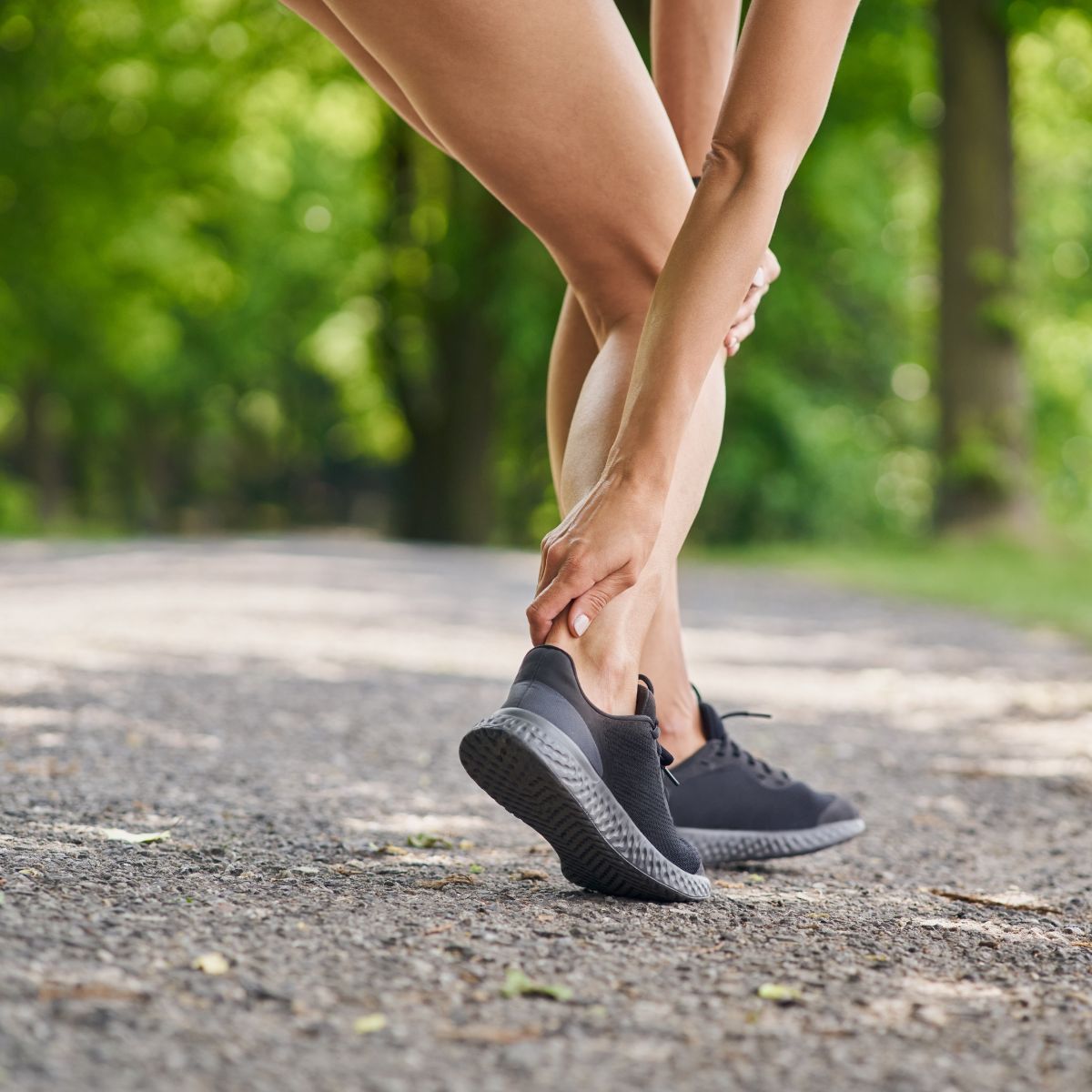Do you experience knee pain?
Have you ever considered that your shoes could be the culprit?
It turns out that wearing the wrong kind of shoes can place strain on your knees and hips, leading to discomfort and pain.
Your knees and hips are the largest joints in your body and are responsible for supporting your weight. When you wear shoes that don't provide adequate support or have improper cushioning, it can disrupt the natural alignment of your joints, causing unnecessary pain the front or back of your knees.
In this post, we will explore the connection between shoes and knee pain.
Whether you're an athlete, a regular gym-goer, or someone who spends most of their time on their feet, let's dive in.
Key Takeaways
- Wearing the wrong shoes can strain your knees and hips, leading to pain and discomfort.
- Your knees and hips support your weight, making proper footwear crucial for joint health.
- Choose shoes that offer adequate support, cushioning, and stability to prevent knee pain.
- Improperly aligned joints due to ill-fitting shoes can increase stress on the knees.
- Investing in shoes that provide proper support can help prevent knee injuries.
The Link Between Shoes and Knee Pain
Your shoes play a crucial role in the biomechanics of your body, influencing how you move and react to motion.
Ill-fitting shoes or those lacking proper support can cause a shift in your weight distribution and center of gravity, leading to knee pain and discomfort.
Additionally, wearing shoes with a heel that is raised more than two inches can also increase stress on your knees.
Shoes Most Likely To Cause Knee Pain
When it comes to your knee health, not all shoes are created equal.
Certain types of shoes can be particularly detrimental and lead to increased knee pain. It's important to be aware of the worst kinds of shoes for your knees to prevent further discomfort and potential long-term damage.
Some of them include:
High heels

High heels are a common culprit when it comes to knee pain.
The elevated heel places excessive strain on the front part of your foot and can lead to an imbalance in weight distribution. This imbalance can cause increased pressure on your knee joints, exacerbating any existing pain or discomfort.
It's best to limit or avoid wearing high heels, especially for extended periods, to reduce the risk of knee pain.
Elevated heels
Shoes with slightly elevated heels, such as wedges or platform shoes, may seem more comfortable than stilettos, but they can still contribute to knee pain.
The height of the heel alters your natural walking mechanics, shifting your weight distribution and potentially increasing stress on your knees. While these shoes may be fashionable, it's important to consider the impact they can have on your knee health.
Flip-flops
Flip-flops offer minimal cushioning and arch support, increasing the impact on your feet and knees. The lack of stability and control can potentially exacerbate nagging knee pain in the night - causing discomfort.
Slippers

Slippers often lack the necessary support and cushioning to protect your knees.
They typically have flat soles that offer minimal shock absorption, leading to increased stress on your knee joints and aggravating knee pain.
Flat-soled shoes
Shoes with thin, flat soles lack proper shock absorption and cushioning, leading to increased pressure on your knees.
The absence of arch support and proper weight distribution can worsen knee pain and discomfort.
Wearing shoes that do not properly fit your feet can alter your natural gait and alignment.
This can lead to an uneven distribution of weight on your knees, placing excess stress on certain areas of the joint. Over time, this can result in inflammation, pain, and even long-term damage.
Recommended Shoes for Knee Pain
It's essential to try on different options and find the shoes that work best for your individual needs, ensuring optimal comfort and support for your knees.
Here are the best ones to consider:
Consider cushioned shoes
These shoes are designed with extra padding in the midsole, which helps absorb shock and reduce impact on the knees during movement.
They usually feature advanced cushioning technologies like gel or foam. Individuals who jog, run, or engage in high-impact activities that can put stress on the knees.
Benefits: Minimizes the force transferred to the knees, reducing pain and preventing injuries.
These shoes excel at absorbing shock and reducing impact forces, providing much-needed relief for your knees.
Stability shoes
Stability shoes offer a perfect balance of cushioning and support.
They often have a firm "post" to reinforce the arch side of the midsole, an area often impacted by overpronation. Ideal for people with flat feet or those who overpronate, as they help maintain proper foot alignment and balance.
Benefits: Improves alignment, which in turn helps distribute weight evenly and reduces stress on the knees.
Orthopedic shoes

Orthopedic shoes are custom-designed or have adjustable features that cater to unique foot needs, providing targeted support and cushioning.
Ideal For individuals with specific foot issues like arthritis or those who require shoes with a specialized fit to manage knee pain.
Benefits: Tailored to address specific problems which conventional shoes might not, thereby significantly alleviating knee pain by improving overall foot function.
Motion control shoes
These are the most rigid and durable type of athletic shoes, designed to limit excessive foot motion.
They are built with thicker heels and a straighter design to counter overpronation. Ideal for runners and walkers with severe overpronation or flat feet.
Benefits: They offer maximum control to prevent incorrect foot movement and align the stride, thereby protecting the knees from undue stress.
Each type of shoe offers unique benefits, so it's important to consider your personal health when selecting the best shoe for knee pain. This will ensure you get the support and comfort necessary to maintain an active lifestyle without discomfort.
Ultimately, the best shoes for knee pain are designed to cater to your specific needs, providing the perfect balance of cushioning, flexibility, and support to keep your knees comfortable and protected.
Features to Consider When Searching for the Best Shoes for Knee Pain
When it comes to finding relief for knee pain, selecting the right shoes can make a significant difference.
Experts recommend focusing on certain key features in your shoe selection to alleviate knee discomfort and promote better knee health. Some of them include:
Select shoes with great arch support
Arch support is crucial for distributing weight evenly throughout your feet and reducing strain on your knees.
Look for shoes that provide adequate arch support to maintain proper alignment and reduce the risk of knee pain.
Choose those with ankle support

Ankle support is essential for stabilizing your feet and ankles, which in turn helps to minimize stress on your knees.
Shoes with ankle support can provide added protection and prevent excessive side-to-side movement that can lead to knee discomfort.
Opt for shoes with shock absorption
Shock absorption is vital for absorbing the impact of each step and minimizing the pressure on your knees.
Shoes with cushioning and shock-absorbing features can help reduce knee pain by providing a buffer against the forces of walking or running.
Select shoes designed for your specific activity
Choosing shoes specifically designed for your intended activity can help minimize strain on your knees.
Different activities have varying impacts on your joints, so it's crucial to invest in footwear that offers the necessary support and cushioning for your chosen sport or exercise.
By considering these expert tips for shoe selection, you can relieve knee pain and improve your overall comfort.
Finding the right shoes with arch support, ankle support, and shock absorption tailored to your specific activity can make a significant difference in managing knee discomfort.
Frequently Asked Questions
Although many people might not realize it, the shoes we wear can have a significant impact on our knee health.
Let's dive into some frequently asked questions on shoes that cause knee pain.
How can I tell if my shoes are contributing to knee pain?
If you notice discomfort in your knees or other parts of your lower body after wearing certain shoes, or if the pain improves when you switch footwear, your shoes may be a contributing factor.
Besides wearing the right shoes, what steps can I take to manage my knee pain?

While wearing the right shoes is important, there are other steps you can take to manage your knee pain effectively.
One key factor to consider is massage therapy.
One can achieve this by paying visit to a masseuse or employing the use of effective self-massage tools like leg massagers or massage guns.
Powerful leg massagers like the Fusion Air C Pro can especially be a beneficial tool in managing knee pain.
By providing consistent, controlled pressure to the leg and knee area, this device enhances blood circulation, which helps in reducing swelling and promoting faster healing of tissues.
Another important way is is through heat and cold therapy.
Applying heat can help relax and loosen tissues and stimulate blood flow in the area while cold therapy can reduce inflammation and numb the area around aching muscles and joints.
How often should I replace my shoes to prevent knee pain?
It is generally recommended to replace your shoes every 300-500 miles of use, or at least once a year if you wear them regularly, as worn-out shoes lose their cushioning and support.
Conclusion
The shoes you wear can have a significant impact on your knee health.
Wearing ill-fitting shoes or shoes without proper support can contribute to knee pain and discomfort.
To protect your knees, opt for shoes with good support, shock absorption, and a proper fit. Look for footwear that provides ample arch support and cushioning, as well as ankle support to stabilize the joints.
Additionally, ensure there is enough room in the toe area to avoid constriction.
By making informed choices and wearing the right shoes, you can minimize the risk of knee pain and improve your overall comfort and mobility.




